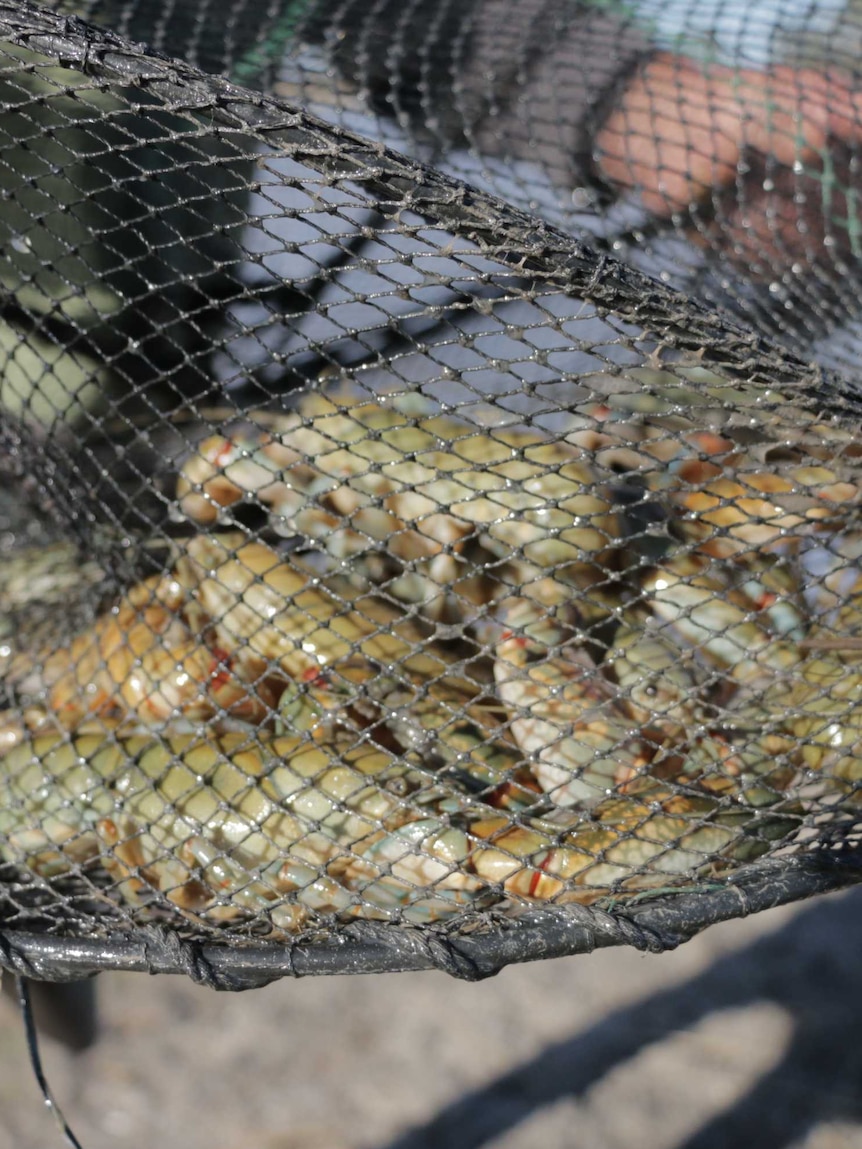Opera house yabby nets will be banned for both recreational and commercial fishers in South Australia from July 1 in a move to align with other states.
Key points:
- The nets are illegal in ACT, Tasmania and Victoria; and are restricted in NSW and Queensland
- Non-target species can be harmed or killed in the funnel-style trap
- Some recreational fishers have raised concerns about the expense of replacing nets
The decision from the Department of Primary Industries and Regions (PIRSA) makes South Australia the fifth state or territory to ban the controversial nets.
PIRSA’s executive director of fisheries and aquaculture Gavin Begg said the move would protect air-breathing animals such as freshwater turtles, platypus and rakali (native water rat) from drowning.
“If they go into the yabby pots they currently use, it’s really hard to get out, so for those sorts of animals yabby pots are quite dangerous,” he said.
Anglers welcome decision
Riverland recreational fisherman Kym Manning said he welcomed the decision, but had concerns about the disposal of existing nets.
“It’ll be a good thing. We’ve got to keep up with the eastern states but it will be at a cost to the recreational fishers,” he said.
“It’s another throwaway thing. To me it’s just a waste of resources.”
RecFish SA executive officer Asher Dezsery said the decision was not a surprise, but he hoped there would be a plan for the nets to be phased out sustainably.
“You’re not only throwing out a perfectly good net but you have to buy a whole net to replace it. It’s almost twice as wasteful,” he said.
“It’s good to see them phased out, but it’s good to find an environmentally friendly solution for the wasted nets.”
Mr Dezsery said he recognised the financial impact the decision might have on end users.
“There’s a lot of losers in the situation. Ultimately, the environment is the winner but that’s being carried as a cost from the recreational and tackle sectors,” he said.
When contacted by the ABC, PIRSA declined to comment on concerns around the disposal of the nets.
Posted




